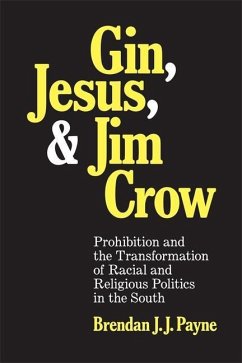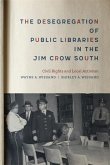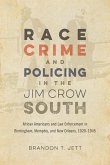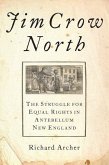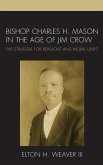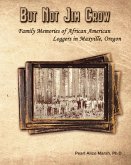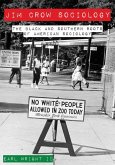"State and local laws against the sale of alcohol arrived in the US South in tandem with white supremacist Jim Crow laws, years before national prohibition. According to Brendan Payne, this was no coincidence. In 'Gin Crow,' he reveals that white prohibitionists encountered difficulty passing anti-alcohol laws until they blamed their failures on racial and ethnic minorities--two groups who tended to vote against prohibition. White 'drys' gradually linked what they saw as a holy crusade against alcohol to white supremacy, a move that led to defeating 'wets' through voter suppression laws. While for white drys, prohibition was God's triumph over demon rum, for minority voters, prohibition was simply another facet of Jim Crow. Payne shows that minorities fiercely resisted prohibition and believed God was on their side. Joined as a coalition of Catholics, Episcopalians, and Lutherans, along with Black Baptists and Methodists, they made common cause against the drys, citing Christian tradition, the Bible, and personal liberty. German, Mexican, and African Americans forged political alliances with brewers, who paid their poll taxes to get out the vote. In states like Texas, Florida, and Arkansas, Black voters decided tight statewide elections against prohibition as late as 1912, well after most scholars thought African American voters in the South had ceased to matter. While some recent scholarship has emphasized the importance of prohibition in creating the Bible Belt's conservative brand of politics among white Protestants, Payne demonstrates that faith played a role on both sides of the prohibition culture war. Indeed, he suggests that racial minorities were just as significant as whites in the contest. Focusing on Texas, the largest southern state, Payne shows that the phenomenon of an interracial, interdenominational coalition defying prohibition, and by extension, Jim Crow, lasted from 1885 to around 1935. He also suggests the legacy of 'Gin Crow' prohibition remains with us today in debates over race, religion, and politics in the South. While white prohibitionists created the Bible Belt, anti-prohibitionists showed the potential power of religiously charged, interracial politics. That coalition rose again during the Civil Rights Movement and shows hints of resurfacing in the early twenty-first century"
Hinweis: Dieser Artikel kann nur an eine deutsche Lieferadresse ausgeliefert werden.
Hinweis: Dieser Artikel kann nur an eine deutsche Lieferadresse ausgeliefert werden.

